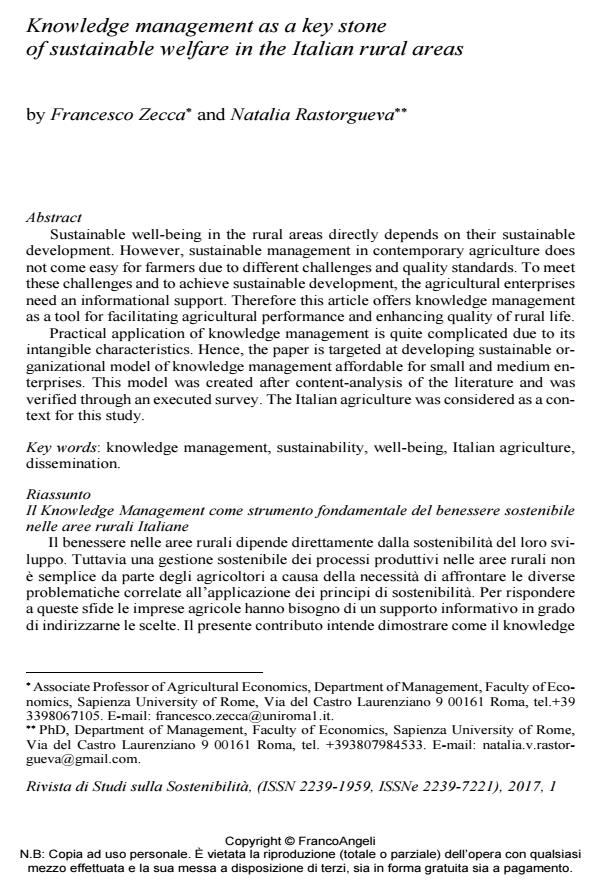Knowledge management as a key stone of sustainable welfare in the Italian rural areas
Journal title RIVISTA DI STUDI SULLA SOSTENIBILITA'
Author/s Francesco Zecca, Natalia Rastorgueva
Publishing Year 2017 Issue 2017/1
Language English Pages 19 P. 183-201 File size 242 KB
DOI 10.3280/RISS2017-001012
DOI is like a bar code for intellectual property: to have more infomation
click here
Below, you can see the article first page
If you want to buy this article in PDF format, you can do it, following the instructions to buy download credits

FrancoAngeli is member of Publishers International Linking Association, Inc (PILA), a not-for-profit association which run the CrossRef service enabling links to and from online scholarly content.
Sustainable well-being in the rural areas directly depends on their sustainable development. However, sustainable management in contemporary agriculture does not come easy for farmers due to different challenges and quality standards. To meet these challenges and to achieve sustainable development, the agricultural enterprises need an informational support. Therefore this article offers knowledge management as a tool for facilitating agricultural performance and enhancing quality of rural life. Practical application of knowledge management is quite complicated due to its intangible characteristics. Hence, the paper is targeted at developing sustainable organizational model of knowledge management affordable for small and medium enterprises. This model was created after contentanalysis of the literature and was verified through an executed survey. The Italian agriculture was considered as a context for this study.
Keywords: Knowledge management, sustainability, well-being, Italian agriculture, dissemination.
- Sustainable Agriculture Management: Environmental, Economic and Social Conjunctures for Coffee Sector in Guerrero, via Traditional Knowledge Management David Israel Contreras-Medina, Luis Miguel Contreras-Medina, Verónica Cerroblanco-Vázquez, in Sustainability /2024 pp.6864
DOI: 10.3390/su16166864
Francesco Zecca, Natalia Rastorgueva, Knowledge management as a key stone of sustainable welfare in the Italian rural areas in "RIVISTA DI STUDI SULLA SOSTENIBILITA'" 1/2017, pp 183-201, DOI: 10.3280/RISS2017-001012